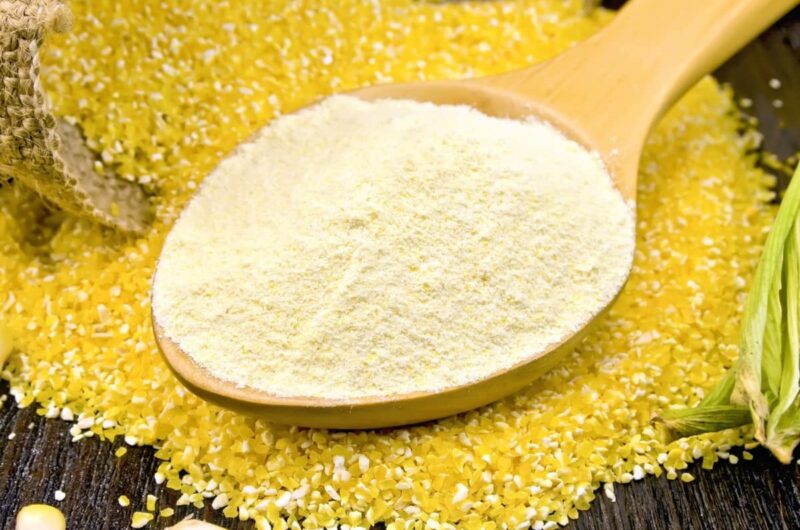Looking for a substitute for corn flour? Here are some top options to try! Cornstarch, rice flour, and cornmeal are great substitutes. You can also try all-purpose flour, whole wheat flour, or even potato flour in a pinch.
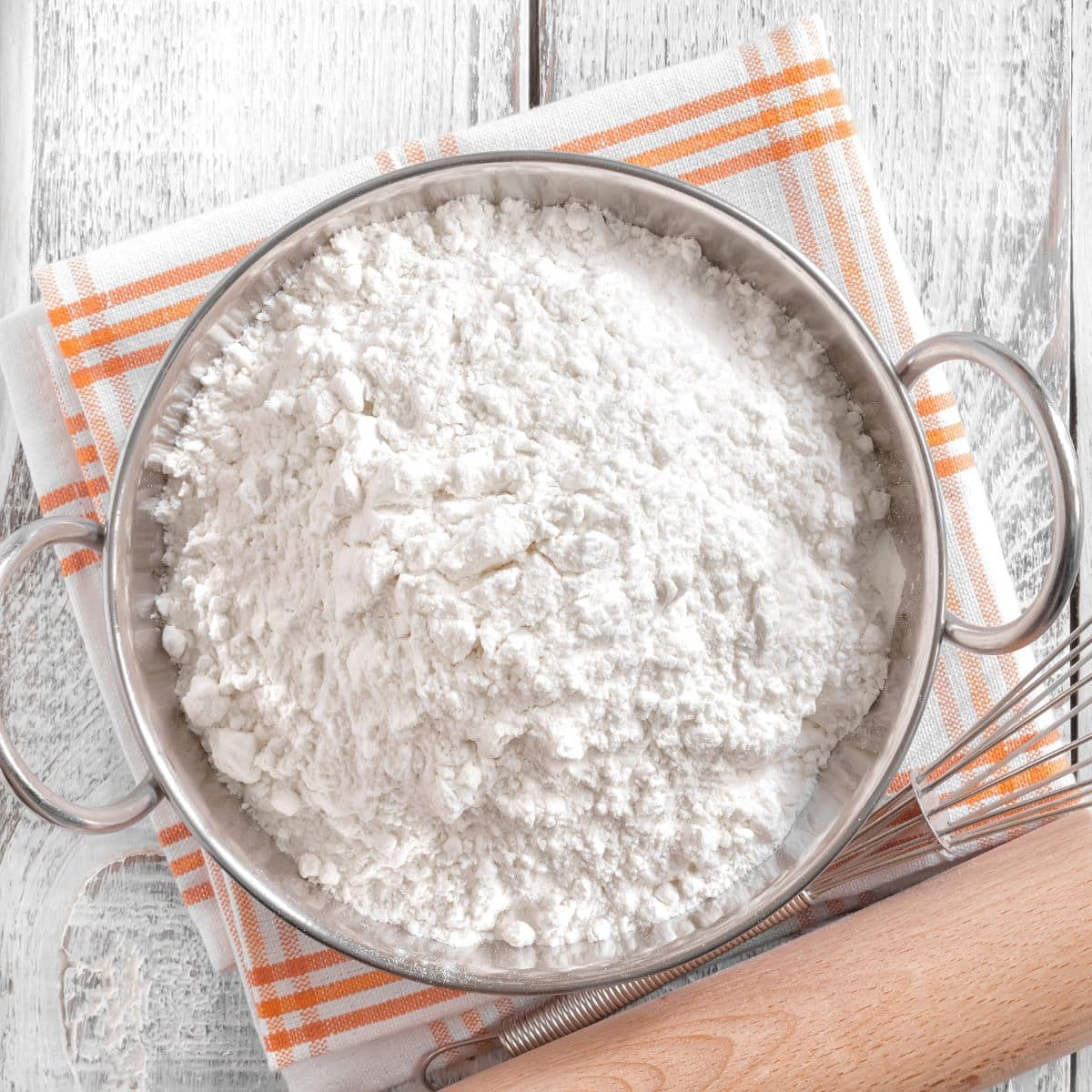
1.Self-Rising Flour
Meet your new kitchen sidekick: self-rising flour! This handy flour is basically all-purpose flour with a boost of baking powder and salt already mixed in.
While it’s not the best for thickening because of those extra ingredients, it’s a great go-to if that’s all you have on hand–just remember to adjust the salt in your recipe.
It shines in baked goods that need a little lift, like biscuits or pancakes. 🌟 For substitutions: Use a 1:1 ratio when it’s called for as a batter.
If you’re thickening soups or sauces, just double the amount of self-rising flour, and you’re golden!
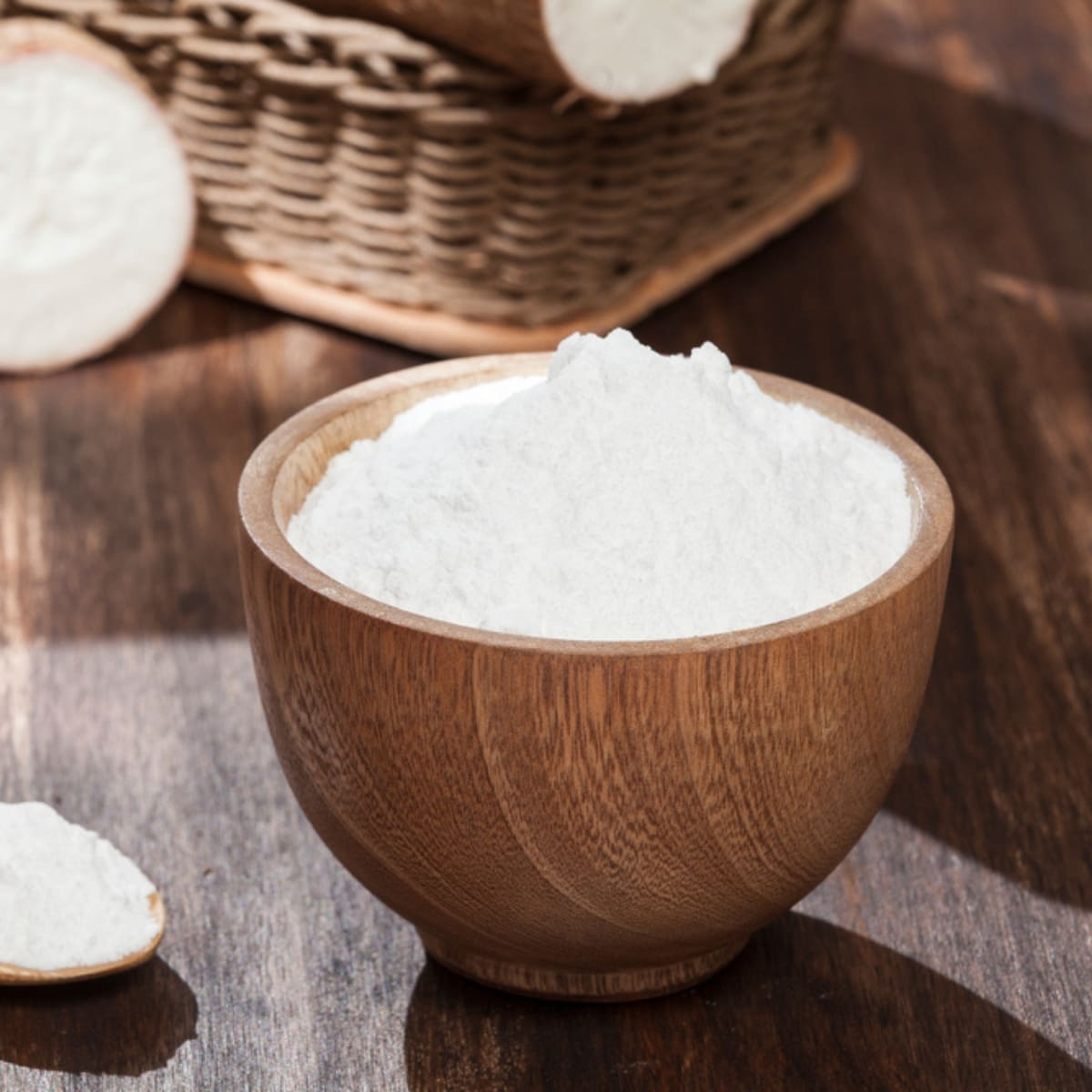
2.Tapioca Flour
Meet tapioca flour, the ultimate kitchen helper! Made from the cassava root, this smooth operator is a pro at thickening, giving you a clear, glossy finish similar to cornstarch.
It’s especially brilliant in fruit fillings because it can handle acidic ingredients with ease. Plus, it adds a delightful chewy texture to baked goods, making it a go-to in gluten-free recipes.
Tapioca flour is all about helping ingredients come together without needing gluten. To substitute, use it 1:1 in place of cornstarch for thickening.
For baking or breading, the ratios may vary depending on the texture you’re after. It’s a versatile addition to any kitchen!

3.Cornmeal
Cornmeal is like the rustic cousin of corn flour, offering a coarser texture that adds a hearty, grainy feel to dishes.
While it’s not the best choice for smooth sauces because of its granular nature, it shines in recipes where a little texture is welcome–think polenta, cornbread, or muffins!
If you’re in a pinch and only have cornmeal but a recipe calls for corn flour, just blitz it in a food processor to make it finer.
Keep in mind it’ll bring a bit of grittiness to the table. For substituting, use a 1:1 ratio when swapping corn flour for cornmeal.
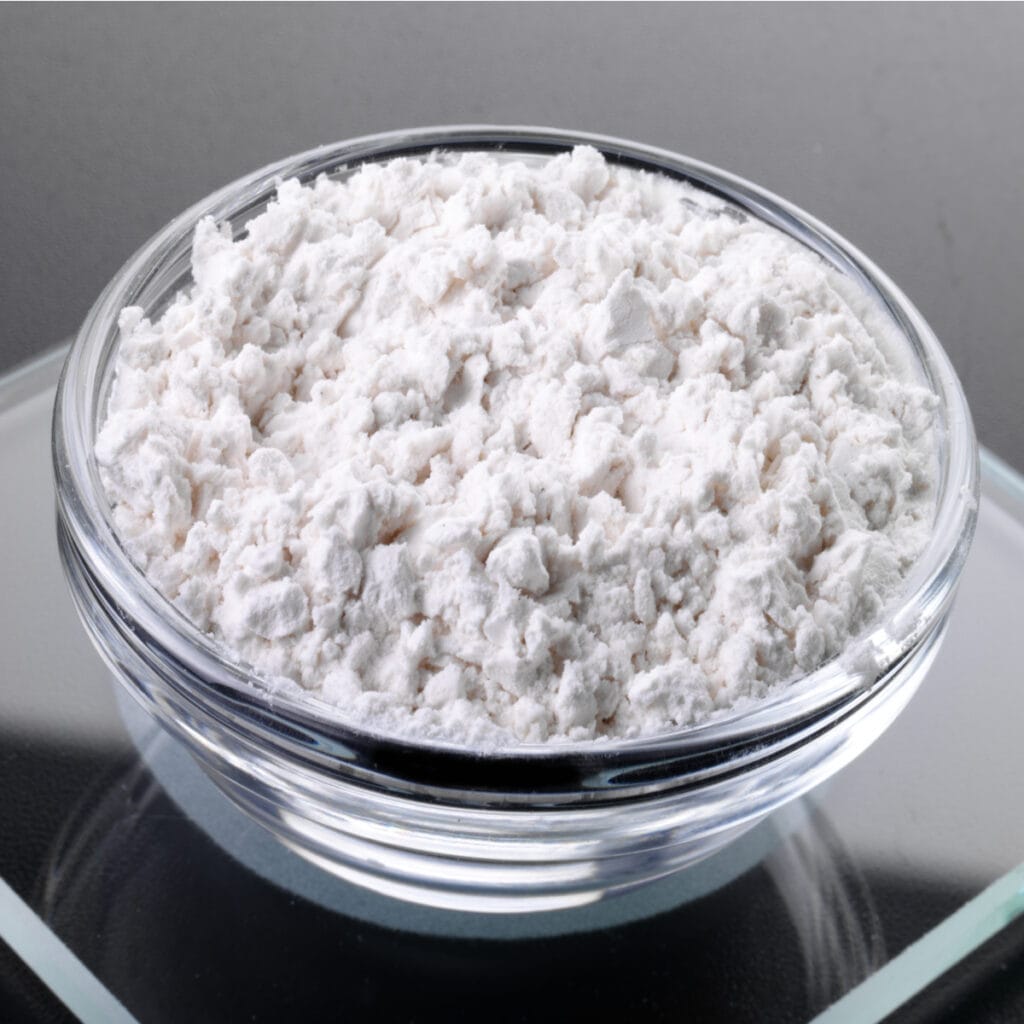
4.Arrowroot Powder
Meet arrowroot, a tropical gem extracted from the arrowroot plant! This popular starch is a fantastic substitute in the kitchen.
It’s known for its clear, gel-like consistency and neutral taste, making it a great alternative to cornstarch. Plus, it’s just as potent as cornstarch, so you can swap them out at a 1:1 ratio.
Arrowroot really shines in fruit glazes, puddings, and pie fillings, giving dishes a glossy finish without altering their flavor.
To substitute, simply use a 1:1 ratio–equal parts arrowroot to the corn flour called for in your recipe.
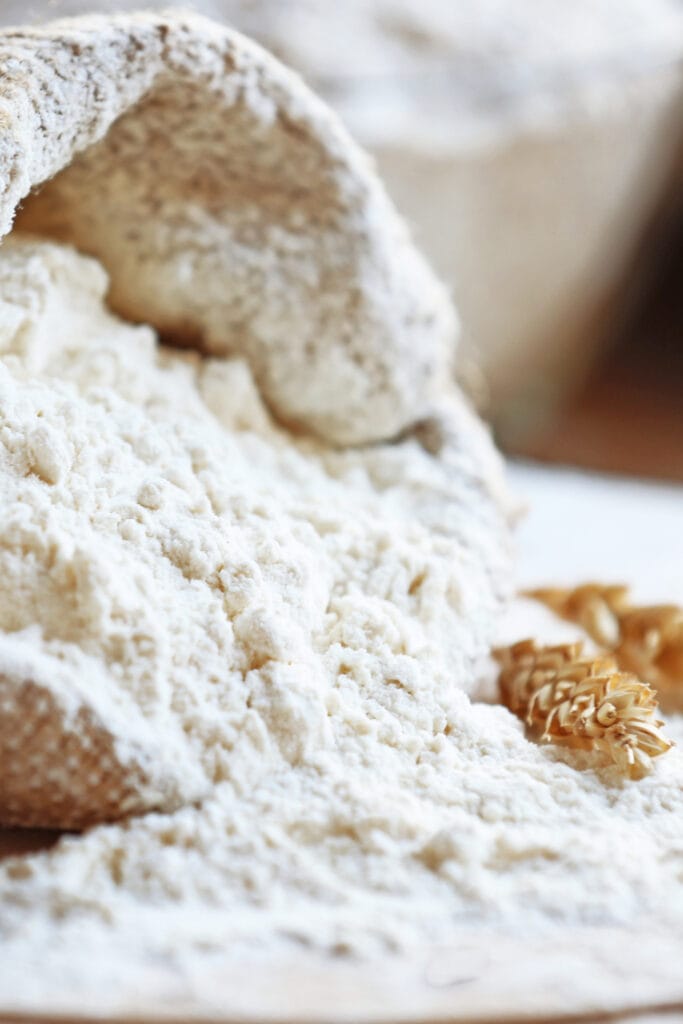
5.Whole Wheat Flour
Whole wheat flour is a great swap for all-purpose flour, offering a nuttier and richer flavor.
It works well as a thickener, but keep in mind it adds a deeper color and a slight wheaty taste to your dishes. It’s perfect for hearty recipes like stews, bread, or casseroles.
When substituting, use twice as much whole wheat flour as you would corn flour. Embrace its earthy charm and enjoy the extra depth it brings to your cooking!
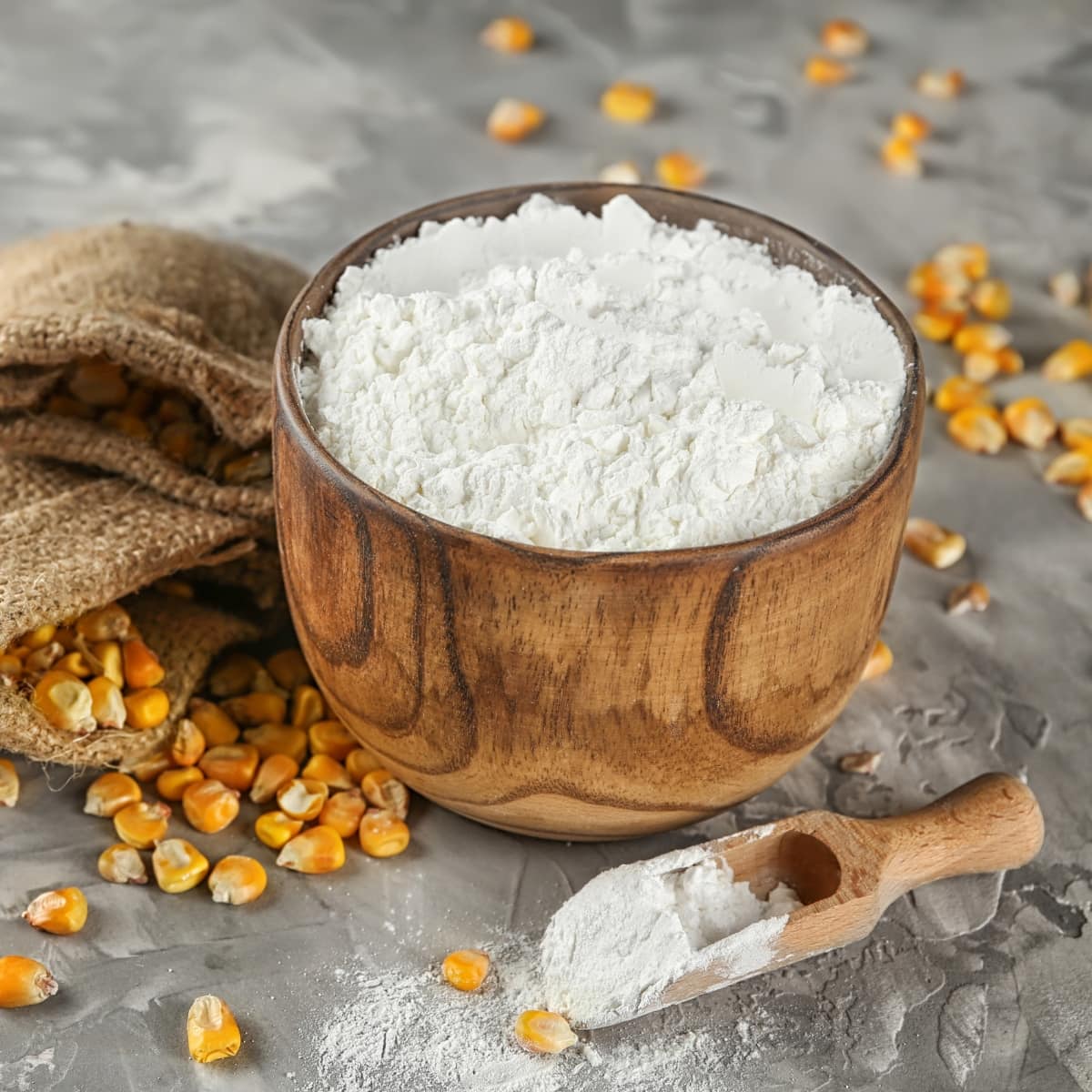
6.Cornstarch
Cornstarch is the ultimate kitchen sidekick when it comes to thickening. This white, powdery wonder comes from the endosperm of corn kernels and works like a charm.
It has the same consistency as corn flour and creates a smooth, lump-free mixture that’s totally see-through. One of its standout features?
It thickens at a higher temperature and leaves a glossy finish, making it perfect for gravies, sauces, and stir-fries. To use it as a substitute, just go with a 1:1 ratio.
Sometimes you’ll still need to mix it with water, depending on the recipe.
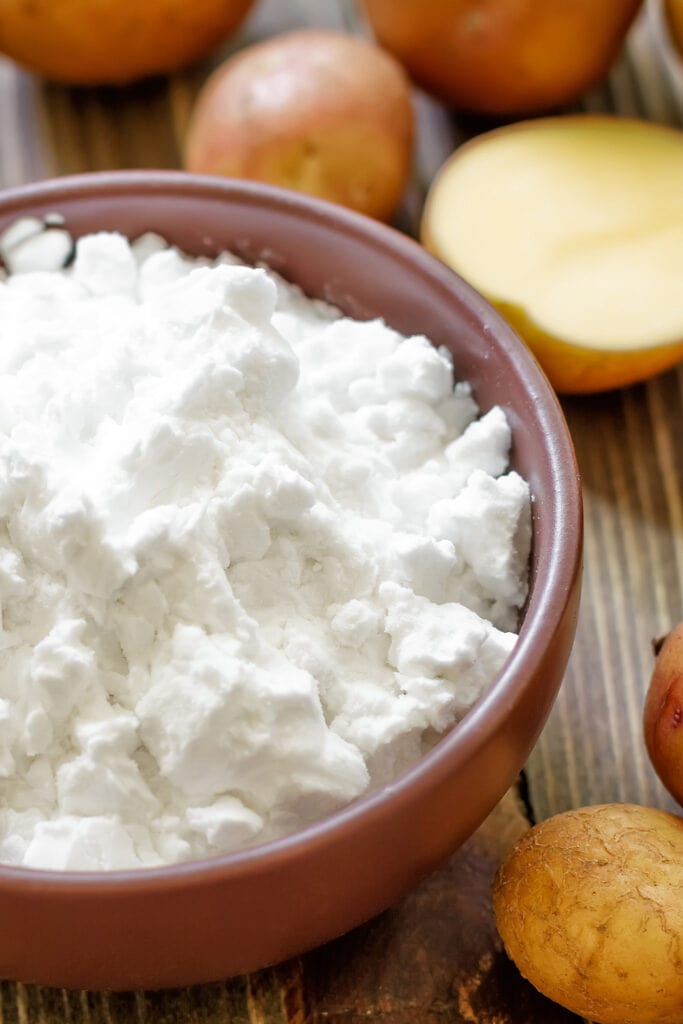
7.Potato Flour
Meet potato flour, the unsung hero of your pantry! Made from ground dried potatoes, it carries that same cozy, earthy vibe you love about spuds.
Whether you’re baking bread, rolls, or even pancakes, potato flour is a game-changer. It keeps things moist and soft, giving your baked goods a tender crumb that’s hard to resist. Need a thickening agent?
Potato flour’s got your back. Just remember to add it gradually to your sauces or gravies, whisking like your life depends on it to keep things smooth. Substituting corn flour? No problem!
Use a 1:1 ratio and you’re golden. It’s the perfect swap for a little extra moisture and flavor in your recipes.
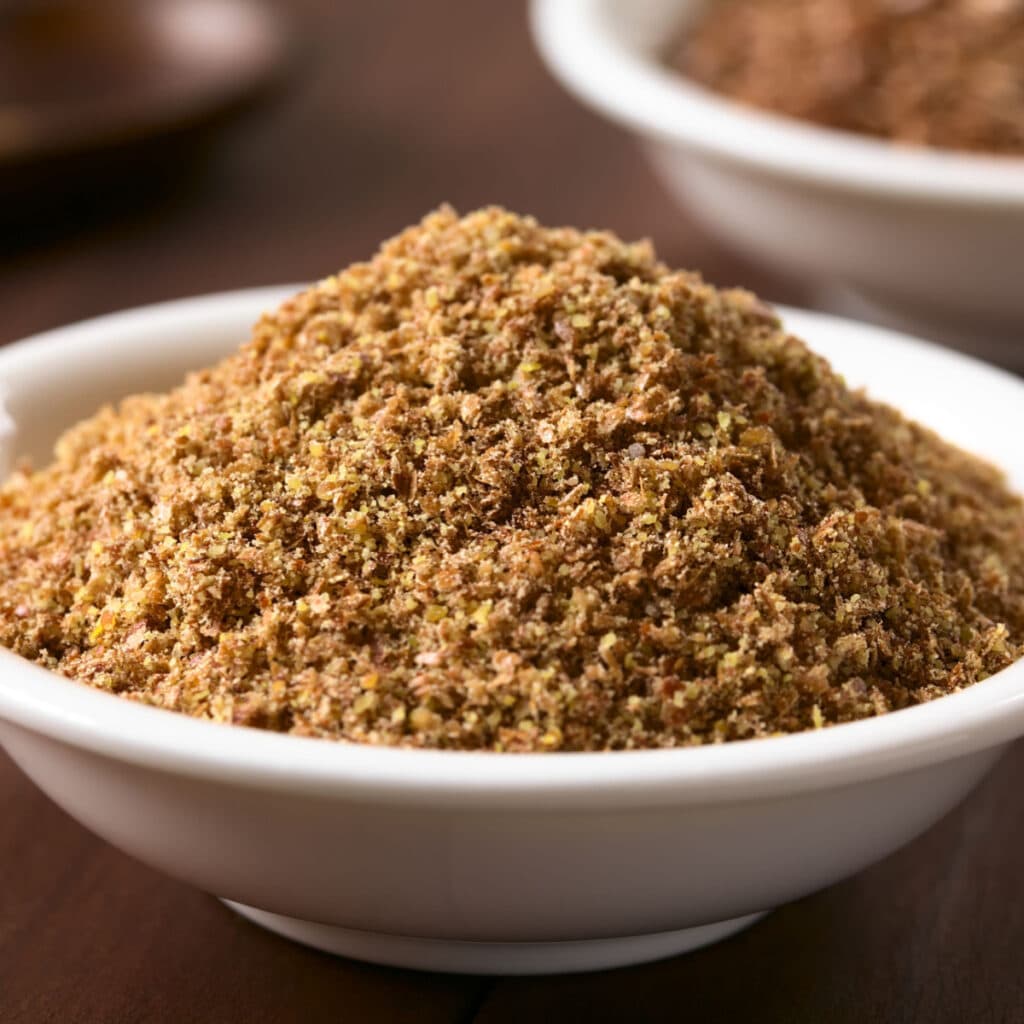
8.Ground Flaxseed
This tiny seed is a real powerhouse! Ground flaxseed, also called flax meal, has a cool trick up its sleeve–it can act like a thickener.
When you mix it with water, it creates a gel-like texture that works just like cornstarch. Plus, it adds a nutty flavor and packs in those omega-3 fatty acids for an extra health boost.
Just a heads-up: it has a slightly grainy texture, so use it sparingly to thicken sauces or gravies. The substitution is easy–use a 1:1 ratio, replacing cornstarch with the same amount of ground flaxseed.
It’s a simple swap that brings big benefits!
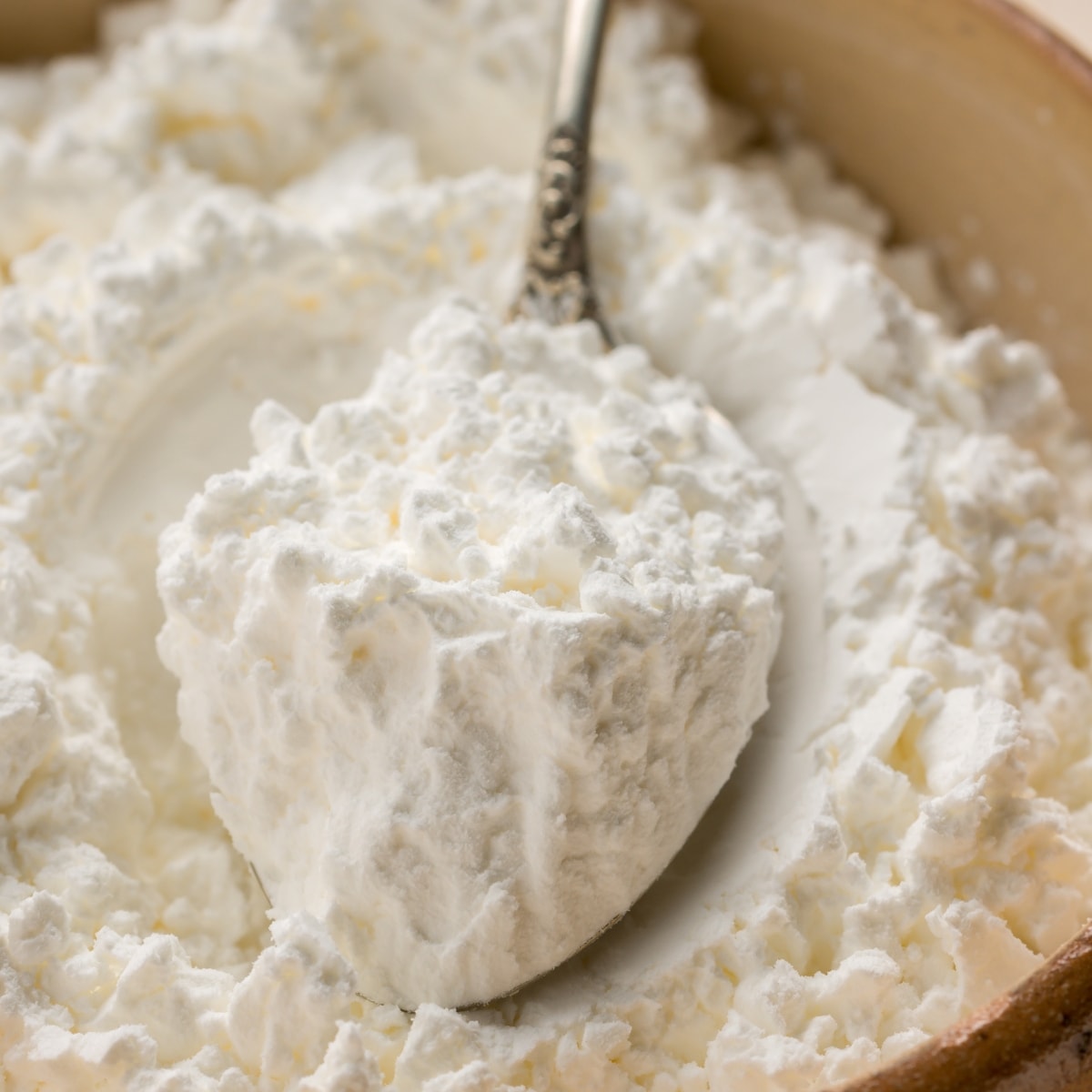
9.Masa Harina
Masa harina is a special kind of flour made from corn kernels that have been treated with alkali. It’s got a unique, hearty corn flavor and is a must-have for making tamales and tortillas.
If you’re looking for a corn flour substitute, masa harina brings a rich, corn-forward taste to the table. It thickens dishes nicely, sitting somewhere between cornmeal and cornstarch in terms of texture.
It’s perfect for adding that extra oomph to soups, stews, or even certain types of bread. To substitute, use a 1:1 ratio–just match the amount of corn flour the recipe calls for.
You might need to tweak it a bit depending on what you’re making, but it’s a great starting point.
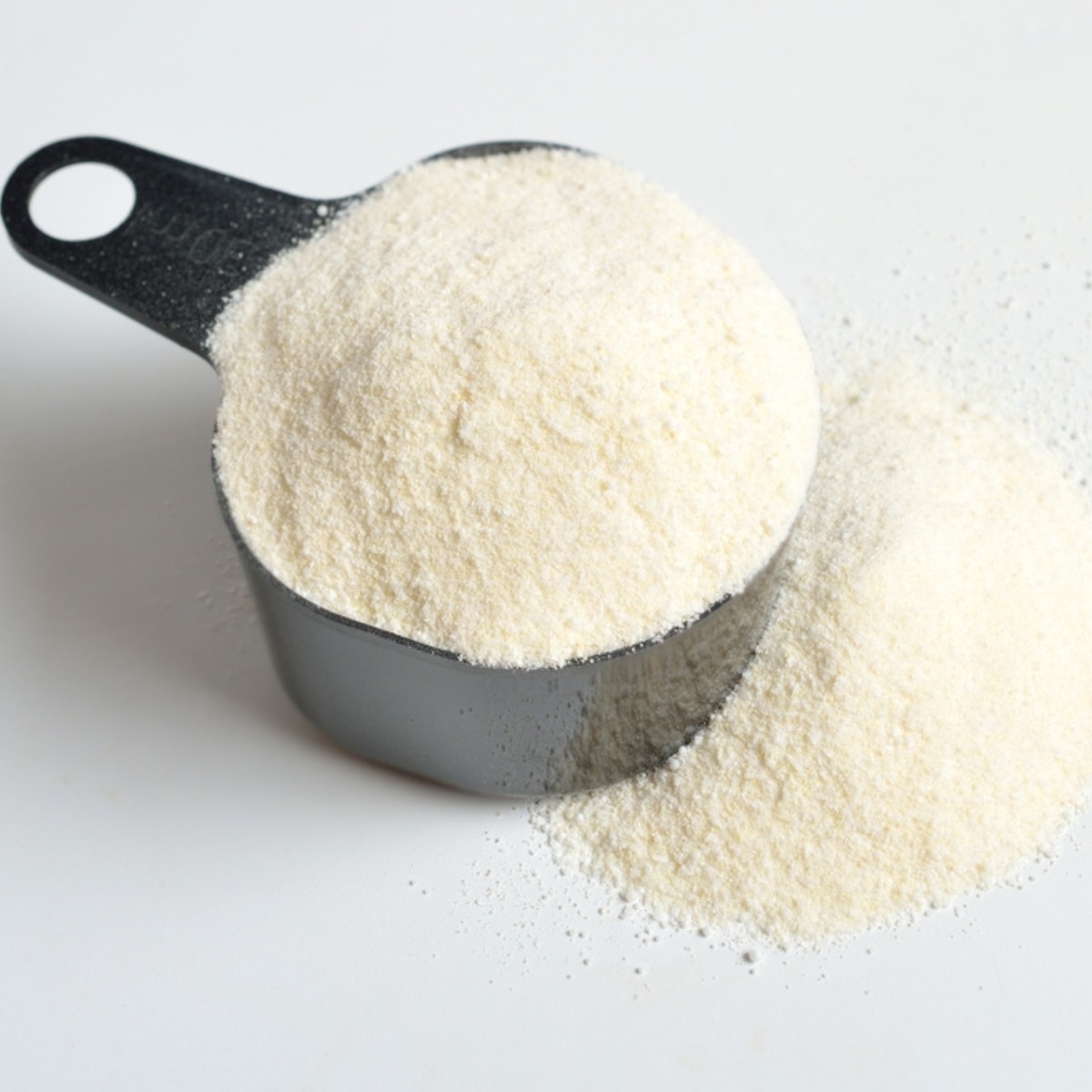
10.Guar Gum
Meet guar gum, the unsung hero of thickening agents! Derived from guar beans, this powerhouse works its magic in tiny amounts, quickly transforming dishes without any odor or taste.
It’s a gluten-free game-changer for baked goods and can also thicken sauces, dressings, and even homemade ice cream. Remember, a little goes a long way–start with a small pinch and adjust to your liking.
To substitute for corn flour, use just 1/8 of the amount called for. It’s a simple swap that delivers big results without extra hassle!

11.All-Purpose Flour
All-purpose flour is the ultimate kitchen multitasker! While it’s a bit denser than cornflour, it’s a great stand-in for thickening sauces and gravies, giving them a slightly opaque finish.
When swapping it in, just remember to use twice as much as you would cornflour.
For the best results, try making a roux by cooking the flour with a bit of fat first–it’ll keep that pesky floury taste at bay.
Plus, it’s super versatile and works wonders in pies, soups, stews, and so much more. The substitution rule? Simple: use a 2:1 ratio when replacing cornflour. Happy cooking!
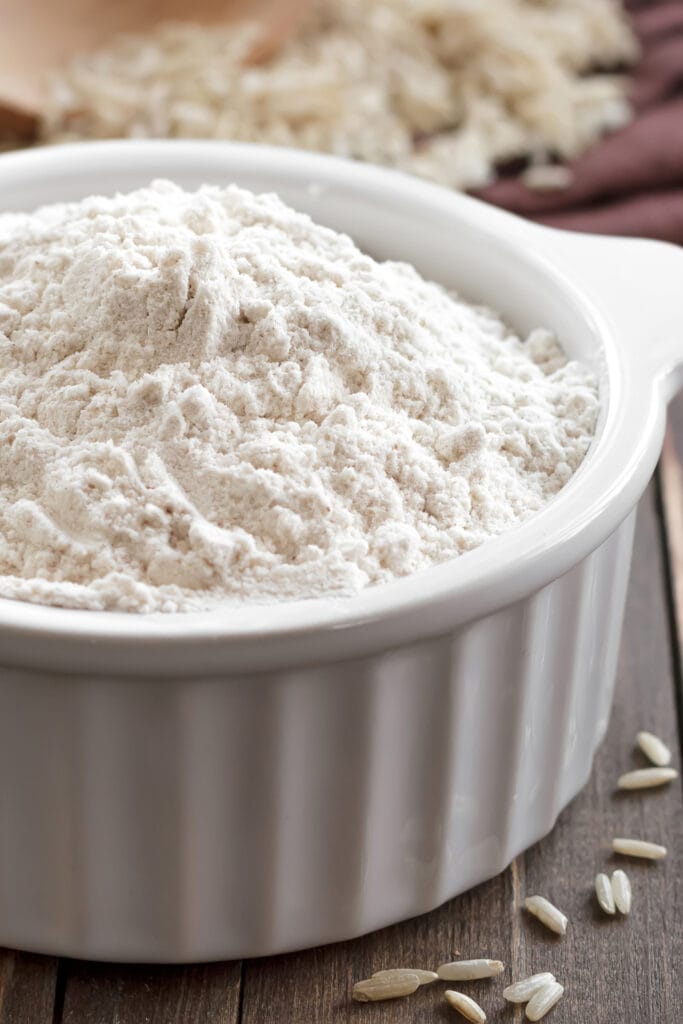
12.Rice Flour
Meet rice flour, your go-to substitute for corn flour, especially if you’re avoiding gluten. It works beautifully in sauces, offering a smooth texture with just a hint of graininess.
Perfect for puddings, soups, and gluten-free treats. Plus, it’s a star when it comes to frying–creating a light, crispy batter. For substitution, use twice as much rice flour as you would corn flour.
A simple swap for a delicious, gluten-free result!
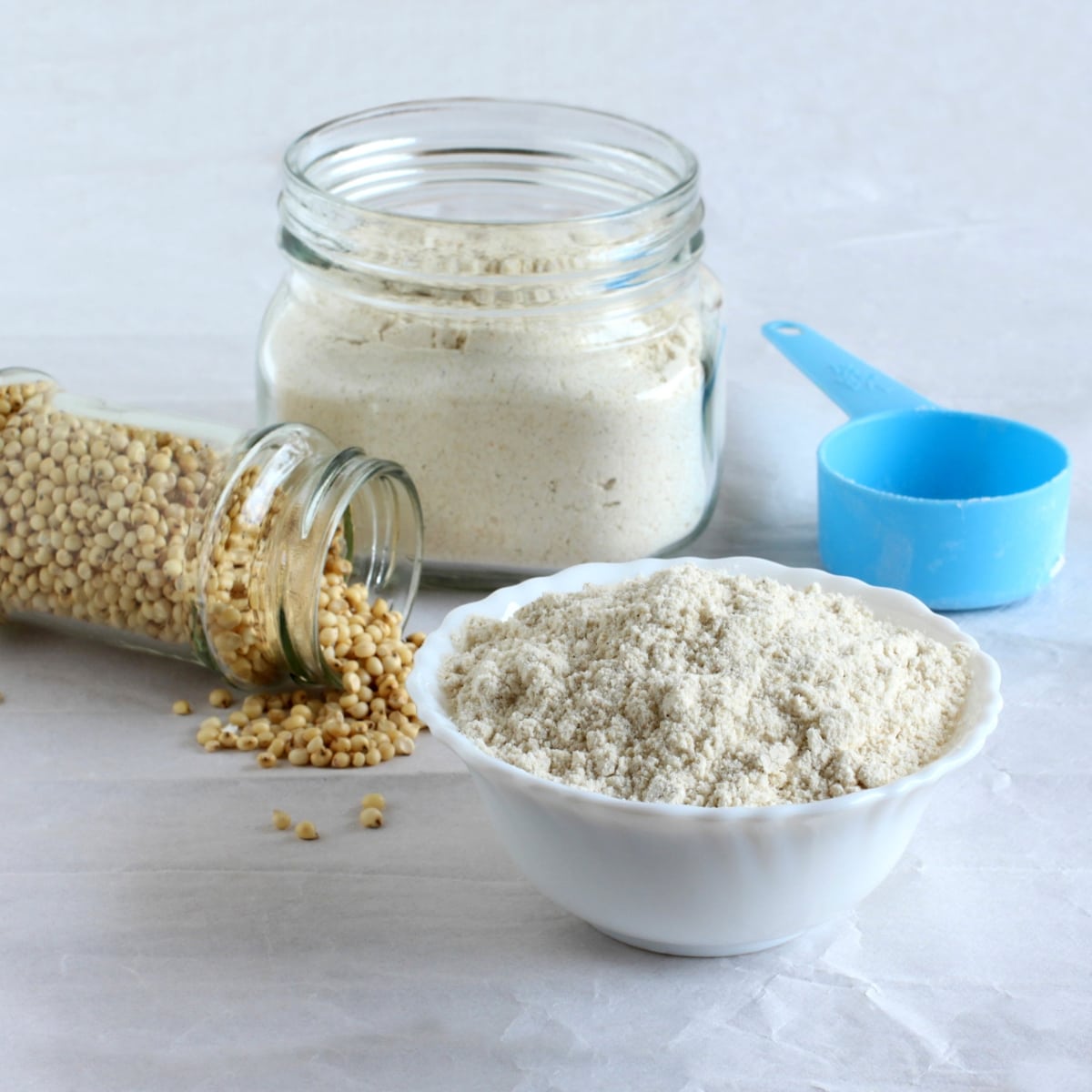
13.Sorghum Flour
Sorghum flour is a game-changer for your recipes, offering a sweet, nutty flavor that’s naturally gluten-free. It’s a fantastic option for special dietary needs and adds a unique twist to your baking.
While it works differently than corn flour as a thickener, it brings a rich, depth of flavor and is packed with vitamins and minerals.
Perfect for breakfast treats like pancakes, waffles, or flatbreads, it lets its distinct taste shine. To substitute, simply use a 1:1 ratio in place of corn flour.
Step up your baking game with this nutritious, flavorful alternative!
Corn Flour Substitutes (13 Best Alternatives)
Course: NoneCuisine: NoneDifficulty: Easy4
servings30
minutes40
minutes300
kcalLooking for a substitute for corn flour? Here are some top options to try! Cornstarch, rice flour, and cornmeal are great substitutes. You can also try all-purpose flour, whole wheat flour, or even potato flour in a pinch.
Ingredients
Self-Rising Flour
Tapioca Flour
Cornmeal
Arrowroot Powder
Whole Wheat Flour
Cornstarch
Potato Flour
Ground Flaxseed
Masa Harina
Guar Gum
All-Purpose Flour
Rice Flour
Sorghum Flour
Directions
- Select your favorite recipe.
- Organize all the required ingredients.
- Prep a delicious recipe in 30 minutes or less!

